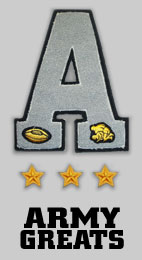
Home
Classes
Coaches
Army Greats
Army Lore
Teams
Of Interest...
About
Submissions
Contact
Newsletter
Credits
Click on small photos
 Cadet will not Lie, Cheat, Steal, or Tolerate Those Who Do Cadet will not Lie, Cheat, Steal, or Tolerate Those Who Do
 USMA at West Point USMA at West Point
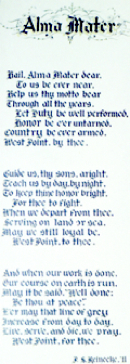 We have changed the wording of our Alma Mater to reflect the fact that our Women Graduates have also given their lives serving this Nation.
We have changed the wording of our Alma Mater to reflect the fact that our Women Graduates have also given their lives serving this Nation.
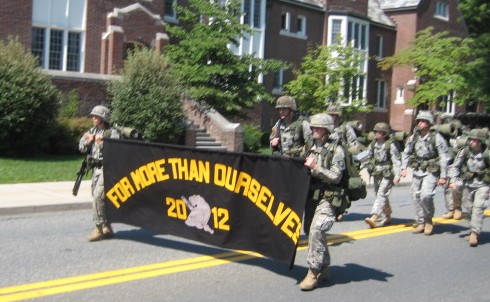 ----- Class of 2012 Motto ------ - "For More Than Ourselves" -Thank you Class of 2012 - for the Honor of Marching with you
The Class of 62 - Can Do ----- Class of 2012 Motto ------ - "For More Than Ourselves" -Thank you Class of 2012 - for the Honor of Marching with you
The Class of 62 - Can Do
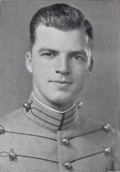 Remember - The Soldiers you will lead Always Come First Remember - The Soldiers you will lead Always Come First
 Motto -- Duty Honor Country Motto -- Duty Honor Country
 The Cadets of West Point
The Cadets of West Point
 They played perhaps Army's Greatest Game. They were the Team that Gave The Most They played perhaps Army's Greatest Game. They were the Team that Gave The Most
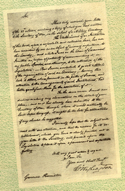 Washington's Letter recommending the establishment of the Academy and the History of West Point
Washington's Letter recommending the establishment of the Academy and the History of West Point
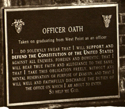
The Oaths We Take
 West Points Medal of Honor Winners West Points Medal of Honor Winners
 Jefferson Hall - the Academy's new Library.
Jefferson Hall - the Academy's new Library.
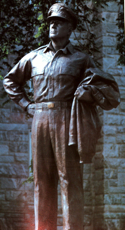 Douglas MacArthur
Douglas MacArthur
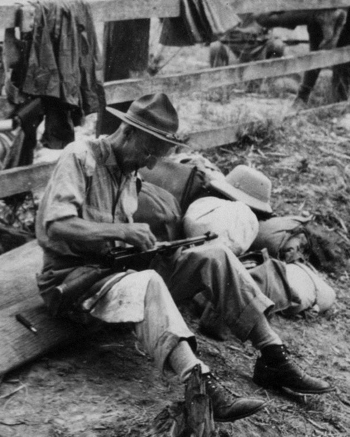
Vinegar Joe Stilwell cleaning his Thompson -The Walkout -Burma 1942
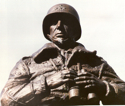 George Patton
George Patton
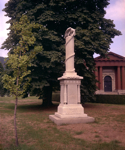 The Monuments of West Point
The Monuments of West Point
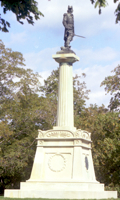 Kosciuszko Monument - Guarding the Hudson ensuring there is no passage of British Man of War
Kosciuszko Monument - Guarding the Hudson ensuring there is no passage of British Man of War
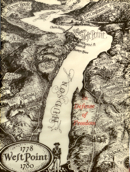 Forts of the Hudson
Forts of the Hudson
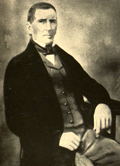
So we'll sing our reminiscences of Benny Havens, Oh!
 Academic Excellence Academic Excellence
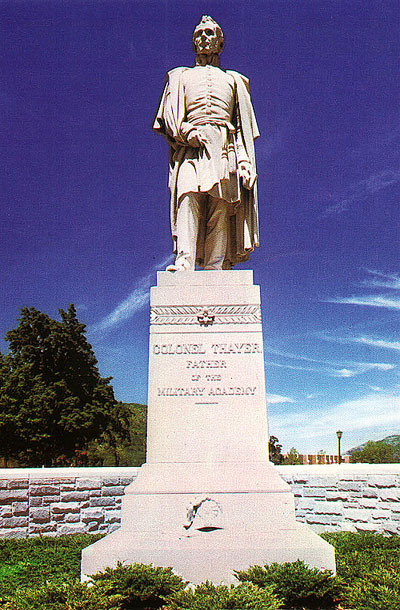 ---- Colonel Thayer ---- Colonel Thayer
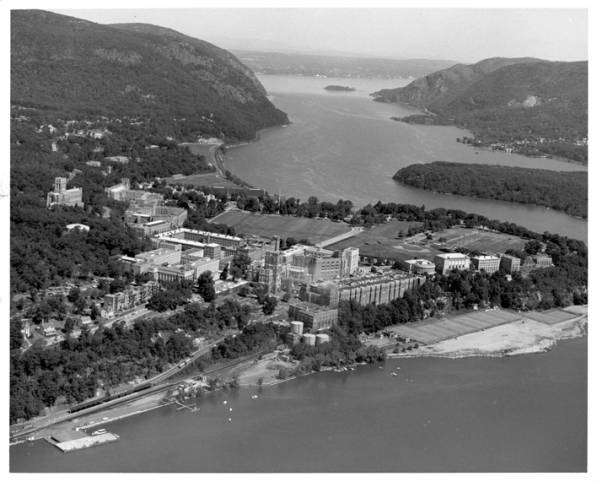 West Point West Point
 Trophy Point Trophy Point
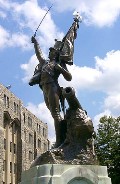 L'Ecole Polytechnique Monument, or The French Monument by Cadets L'Ecole Polytechnique Monument, or The French Monument by Cadets
 Superintendent's Quarters viewed from Thayer Road Superintendent's Quarters viewed from Thayer Road
 Superintendant was not Happy
Black '57
Superintendant was not Happy
Black '57
 Home of the Dean Home of the Dean
 Quarters 104 Quarters 104
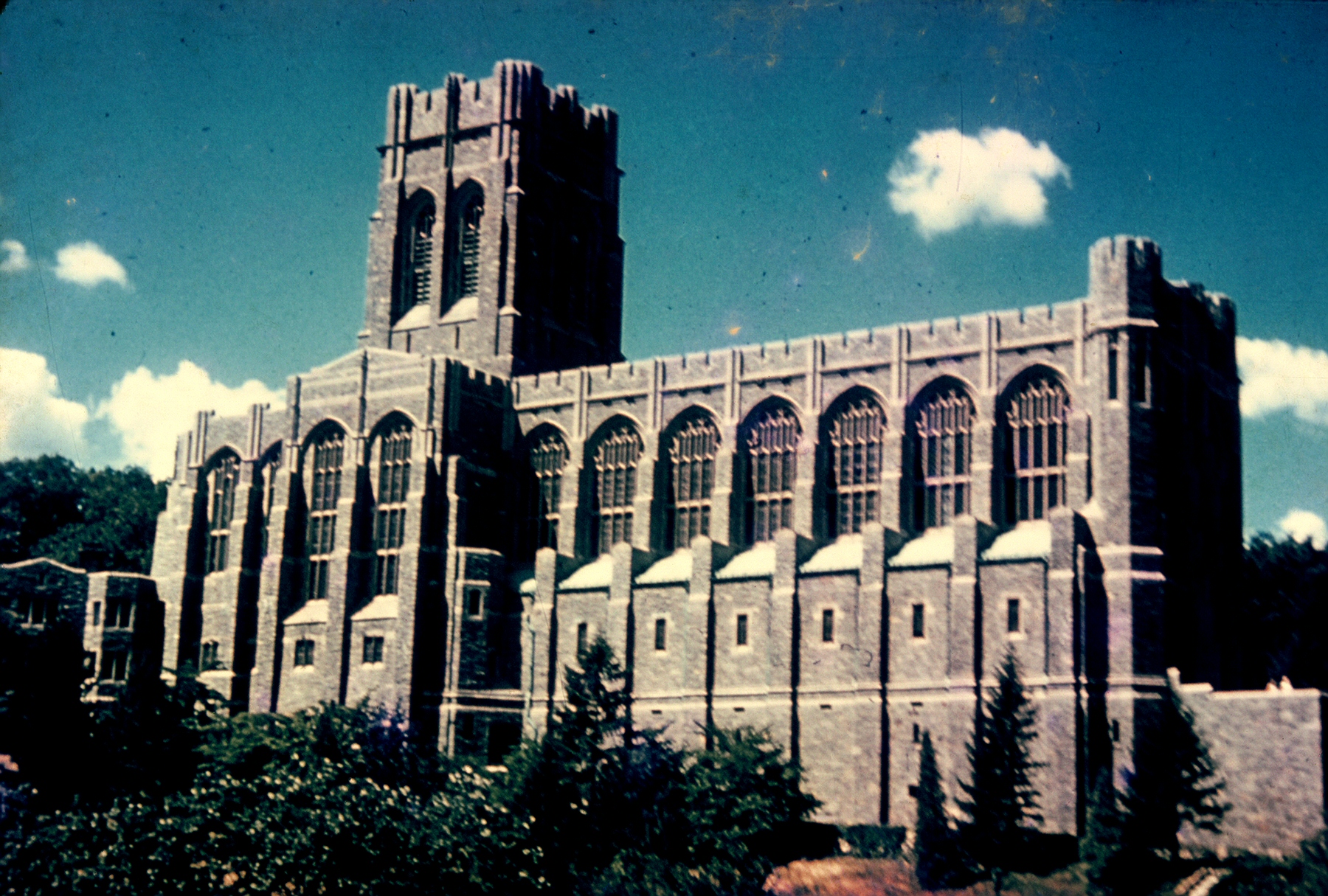 Cadet Chapel Cadet Chapel
 Michie Stadium Michie Stadium
 Arvin Gym Arvin Gym
 Kimsey Athletic Center Kimsey Athletic Center
 Holleder Center Holleder Center
 Washington Monument Washington Monument
 United States Military Academy Band United States Military Academy Band
 Cadet Barracks Cadet Barracks
 Rugby Complex Rugby Complex
 Great Chain Great Chain
 Plain looking toward Washington Hall Plain looking toward Washington Hall
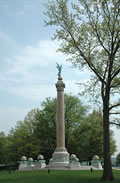 Battle Monument Battle Monument
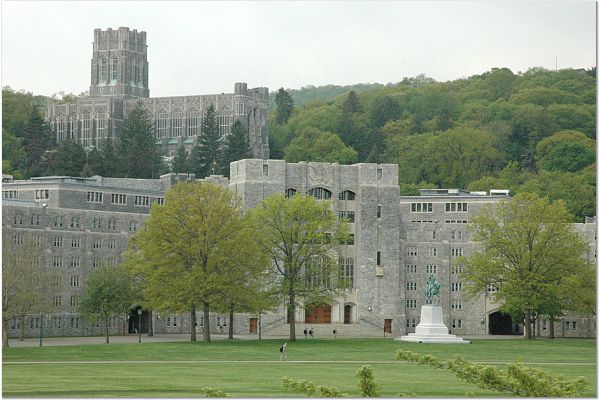 Washington Hall with Cadet Chapel on rocks above. Washington Hall with Cadet Chapel on rocks above.
 Hudson River Hudson River
 Captured Trophies Captured Trophies
 Battle Monument Battle Monument
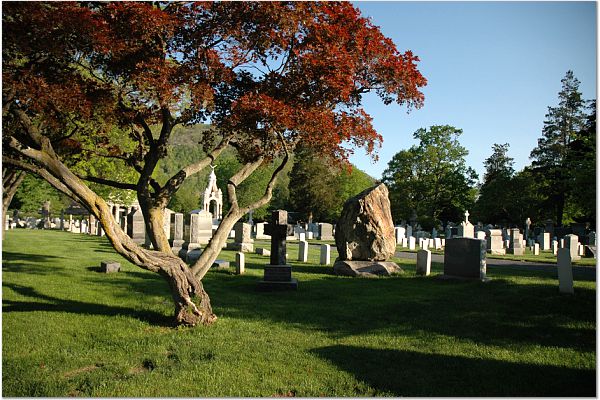 West Point Cemetery West Point Cemetery
 Plain Plain
 Cost to this Nation of Differing Views Cost to this Nation of Differing Views
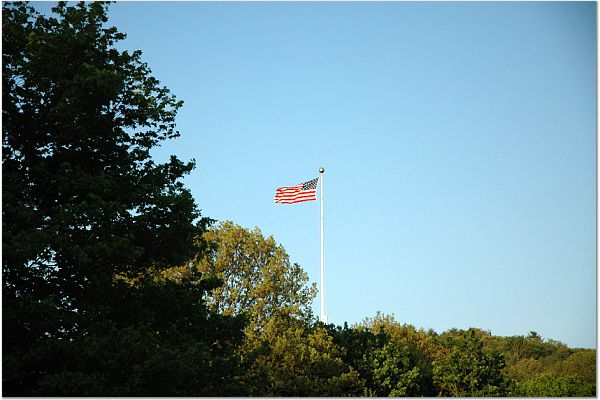 Trophy Point -- Our Flag Trophy Point -- Our Flag
 Corps of Cadets Formed in Companies early 1960s Corps of Cadets Formed in Companies early 1960s
 Corps of Cadets Formed in Companies early 1960s Corps of Cadets Formed in Companies early 1960s
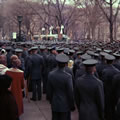 Sending the Army Team off to Beat Navy Sending the Army Team off to Beat Navy
 Army Mule Army Mule
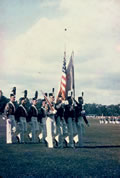 Color Guard Color Guard
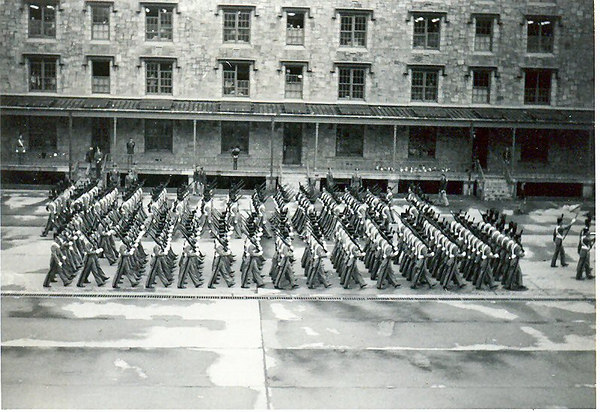
Band Box Review Early 1950's in Central Area
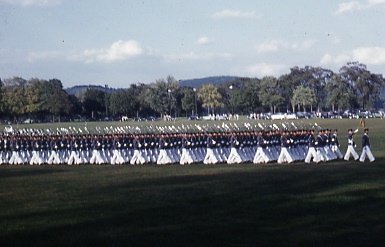 Battalion Mass Early 50's Battalion Mass Early 50's
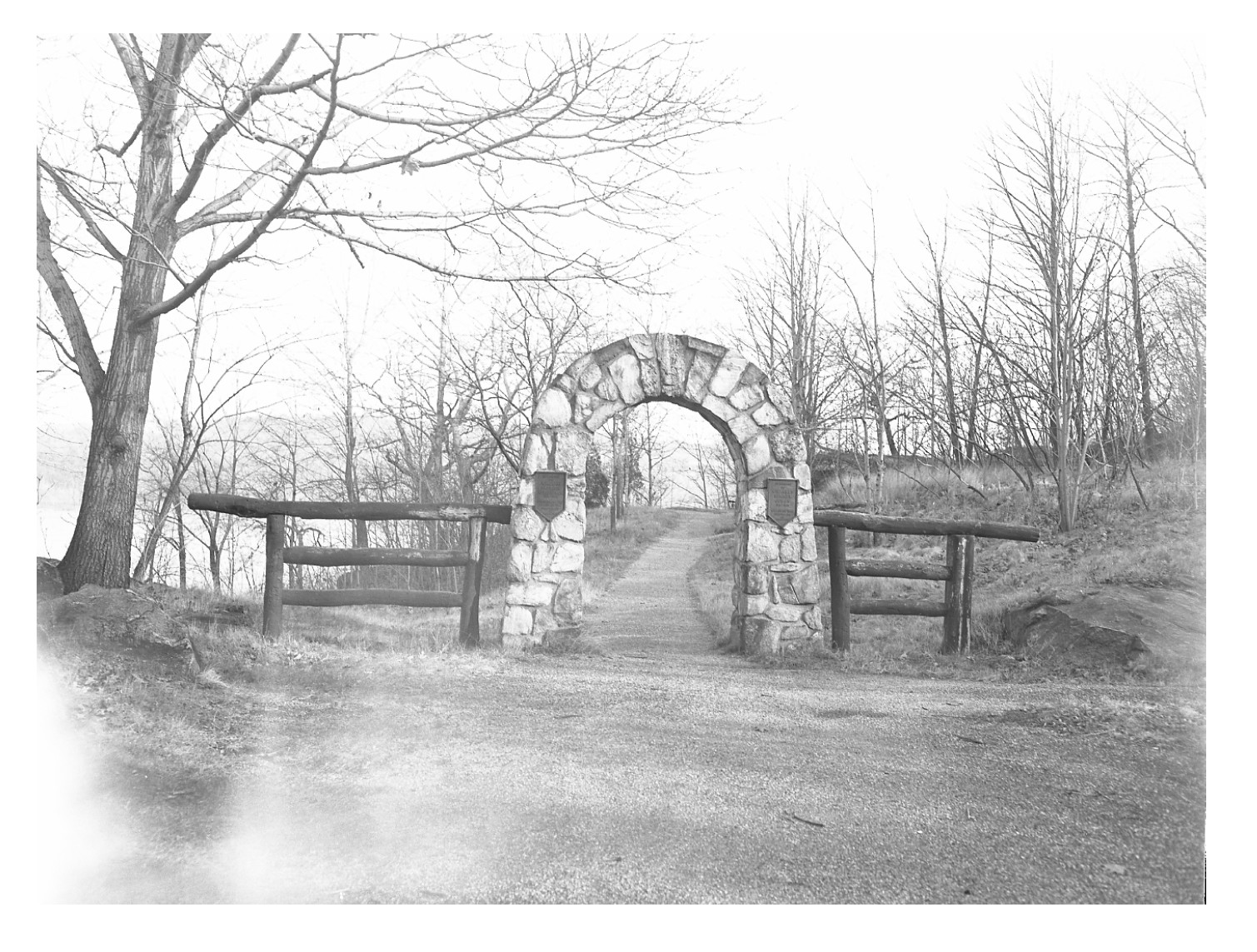 Flirtation Walk Flirtation Walk
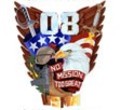
 Arvin Gym Arvin Gym
Duty Honor Country
 Cadet will not Lie, Cheat, Steal, or Tolerate Those Who Do Cadet will not Lie, Cheat, Steal, or Tolerate Those Who Do
 Motto -- Duty Honor Country Motto -- Duty Honor Country
 Remember - The Soldiers you will lead Always Come First Remember - The Soldiers you will lead Always Come First

 Academic Excellence Academic Excellence
 --They played perhaps Army's Greatest Game. They were the Team that Gave The Most --They played perhaps Army's Greatest Game. They were the Team that Gave The Most
 Colonel Thayer Colonel Thayer
 West Point mid 60's West Point mid 60's
 Trophy Point Trophy Point
 L'Ecole Polytechnique Monument, or The French Monument by Cadets L'Ecole Polytechnique Monument, or The French Monument by Cadets
 Superintendent's Quarters viewed from Thayer Road Superintendent's Quarters viewed from Thayer Road
 Cadet Chapel Cadet Chapel
 Michie Stadium Michie Stadium
 Arvin Gym Arvin Gym
 Kimsey Athletic Center Kimsey Athletic Center
 Holleder Center Holleder Center
 Washington Monument Washington Monument
 United States Military Academy Band United States Military Academy Band
 Barracks Barracks
 Rugby Complex Rugby Complex
 Great Chain Great Chain
 Plain looking toward Washington Hall Plain looking toward Washington Hall
 Battle Monument Battle Monument
 Washington Hall with Cadet Chapel on rocks above. Washington Hall with Cadet Chapel on rocks above.
 Hudson River Hudson River
 Captured Trophies Captured Trophies
 Battle Monument Battle Monument
 West Point Cemetery West Point Cemetery
 Plain Plain
 Cost to this Nation of Differing Views Cost to this Nation of Differing Views
 Trophy Point -- Our Flag Trophy Point -- Our Flag
 Corps of Cadets Formed in Companies early 1960s Corps of Cadets Formed in Companies early 1960s
 Corps of Cadets Formed in Companies early 1960s Corps of Cadets Formed in Companies early 1960s
 Sending the Army Team off to Beat Navy Sending the Army Team off to Beat Navy
 Army Mule Army Mule
 Color Guard Color Guard

Band Box Review Early 1950's in Central Area
 Battalion Mass Early 50's Battalion Mass Early 50's
 Flirtation Walk Flirtation Walk
 Cadet will not Lie, Cheat, Steal, or Tolerate Those Who Do Cadet will not Lie, Cheat, Steal, or Tolerate Those Who Do
 Motto -- Duty Honor Country Motto -- Duty Honor Country
 Remember - The Soldiers you will lead Always Come First Remember - The Soldiers you will lead Always Come First
 Academic Excellence Academic Excellence
 They played perhaps Army's Greatest Game. They were the Team that Gave The Most They played perhaps Army's Greatest Game. They were the Team that Gave The Most
 Colonel Thayer Colonel Thayer
 West Point mid 60's West Point mid 60's
 Trophy Point Trophy Point
 L'Ecole Polytechnique Monument, or The French Monument by Cadets L'Ecole Polytechnique Monument, or The French Monument by Cadets
 Superintendent's Quarters viewed from Thayer Road Superintendent's Quarters viewed from Thayer Road
 Cadet Chapel Cadet Chapel
 Michie Stadium Michie Stadium
 Arvin Gym Arvin Gym
 Kimsey Athletic Center Kimsey Athletic Center
 Holleder Center Holleder Center
 Washington Monument Washington Monument
 United States Military Academy Band United States Military Academy Band
 Barracks Barracks
 Rugby Complex Rugby Complex
 Great Chain Great Chain
 Plain looking toward Washington Hall Plain looking toward Washington Hall
 Battle Monument Battle Monument
 Washington Hall with Cadet Chapel on rocks above. Washington Hall with Cadet Chapel on rocks above.
 Hudson River Hudson River
 Captured Trophies Captured Trophies
 Battle Monument Battle Monument
 West Point Cemetery West Point Cemetery
 Plain Plain
 - Cost to this Nation of Differing Views - Cost to this Nation of Differing Views
 Trophy Point -- Our Flag Trophy Point -- Our Flag
 Corps of Cadets Formed in Companies early 1960s Corps of Cadets Formed in Companies early 1960s
 Corps of Cadets Formed in Companies early 1960s Corps of Cadets Formed in Companies early 1960s
 Sending the Army Team off to Beat Navy Sending the Army Team off to Beat Navy
 - Army Mule - Army Mule
 Color Guard Color Guard

Band Box Review Early 1950's in Central Area
 Battalion Mass Early 50's Battalion Mass Early 50's
 Flirtation Walk Flirtation Walk
Click on Photos Below
Please note it takes a couple of hours to update all pages as material is added to this section. You may have to return to the home page to see all of the current links
 Cadet will not Lie, Cheat, Steal, or Tolerate Those Who Do Cadet will not Lie, Cheat, Steal, or Tolerate Those Who Do
 We have changed the wording of our Alma Mater to reflect the fact that our Women Graduates have also given their lives serving this Nation.
We have changed the wording of our Alma Mater to reflect the fact that our Women Graduates have also given their lives serving this Nation.
 ----- Class of 2012 Motto ----- "For More Than Ourselves" Thank you Class of 2012 for the Honor of Marching with you
The Class of 62 ----- Class of 2012 Motto ----- "For More Than Ourselves" Thank you Class of 2012 for the Honor of Marching with you
The Class of 62
 ---------- Class of 2008 --------- ----- Class Crest & Motto ----- "No Mission Too Great" ---------- Class of 2008 --------- ----- Class Crest & Motto ----- "No Mission Too Great"
---- Their Commencement ---- "Here am I; Send me." Thank you Class of 2008 and Please Thank the Men & Women --- the Soldiers you will lead ---
The Class of 62.
 Motto -- Duty Honor Country Motto -- Duty Honor Country
 Remember - The Soldiers you will lead Always Come First Remember - The Soldiers you will lead Always Come First
 Jefferson Hall - the Academy's new Library.
Jefferson Hall - the Academy's new Library.
 Academic Excellence Academic Excellence
 --They played perhaps Army's Greatest Game. They were the Team that Gave The Most --They played perhaps Army's Greatest Game. They were the Team that Gave The Most
 ---- Colonel Thayer ---- Colonel Thayer
 West Point mid 60's West Point mid 60's
 Trophy Point Trophy Point
 L'Ecole Polytechnique Monument, or The French Monument by Cadets L'Ecole Polytechnique Monument, or The French Monument by Cadets
 Superintendent's Quarters viewed from Thayer Road Superintendent's Quarters viewed from Thayer Road
 Cadet Chapel Cadet Chapel
 Michie Stadium Michie Stadium
 Arvin Gym Arvin Gym
 Kimsey Athletic Center Kimsey Athletic Center
 Holleder Center Holleder Center
 Washington Monument Washington Monument
 United States Military Academy Band United States Military Academy Band
 Barracks Barracks
 Rugby Complex Rugby Complex
 Great Chain Great Chain
 Plain looking toward Washington Hall Plain looking toward Washington Hall
 Battle Monument Battle Monument
 Washington Hall with Cadet Chapel on rocks above. Washington Hall with Cadet Chapel on rocks above.
 Hudson River Hudson River
 Captured Trophies Captured Trophies
 Battle Monument Battle Monument
 West Point Cemetery West Point Cemetery
 Plain Plain
 - Cost to this Nation of Differing Views - Cost to this Nation of Differing Views
 Trophy Point -- Our Flag Trophy Point -- Our Flag
 Corps of Cadets Formed in Companies early 1960s Corps of Cadets Formed in Companies early 1960s
 Corps of Cadets Formed in Companies early 1960s Corps of Cadets Formed in Companies early 1960s
 Sending the Army Team off to Beat Navy Sending the Army Team off to Beat Navy
 - Army Mule - Army Mule
 Color Guard Color Guard

Band Box Review Early 1950's in Central Area
 Battalion Mass Early 50's Battalion Mass Early 50's
 Flirtation Walk Flirtation Walk

 Arvin Gym Arvin Gym
Duty Honor Country
 Cadet will not Lie, Cheat, Steal, or Tolerate Those Who Do Cadet will not Lie, Cheat, Steal, or Tolerate Those Who Do
 Motto -- Duty Honor Country Motto -- Duty Honor Country
 Remember - The Soldiers you will lead Always Come First Remember - The Soldiers you will lead Always Come First

 Academic Excellence Academic Excellence
 --They played perhaps Army's Greatest Game. They were the Team that Gave The Most --They played perhaps Army's Greatest Game. They were the Team that Gave The Most
 ---- Colonel Thayer ---- Colonel Thayer
 West Point mid 60's West Point mid 60's
 Trophy Point Trophy Point
 L'Ecole Polytechnique Monument, or The French Monument by Cadets L'Ecole Polytechnique Monument, or The French Monument by Cadets
 Superintendent's Quarters viewed from Thayer Road Superintendent's Quarters viewed from Thayer Road
 Cadet Chapel Cadet Chapel
 Michie Stadium Michie Stadium
 Arvin Gym Arvin Gym
 Kimsey Athletic Center Kimsey Athletic Center
 Holleder Center Holleder Center
 Washington Monument Washington Monument
 United States Military Academy Band United States Military Academy Band
 Barracks Barracks
 Rugby Complex Rugby Complex
 Great Chain Great Chain
 Plain looking toward Washington Hall Plain looking toward Washington Hall
 Battle Monument Battle Monument
 Washington Hall with Cadet Chapel on rocks above. Washington Hall with Cadet Chapel on rocks above.
 Hudson River Hudson River
 Captured Trophies Captured Trophies
 Battle Monument Battle Monument
 West Point Cemetery West Point Cemetery
 Plain Plain
 - Cost to this Nation of Differing Views - Cost to this Nation of Differing Views
 Trophy Point -- Our Flag Trophy Point -- Our Flag
 Corps of Cadets Formed in Companies early 1960s Corps of Cadets Formed in Companies early 1960s
 Corps of Cadets Formed in Companies early 1960s Corps of Cadets Formed in Companies early 1960s
 Sending the Army Team off to Beat Navy Sending the Army Team off to Beat Navy
 - Army Mule - Army Mule
 Color Guard Color Guard

Band Box Review Early 1950's in Central Area
 Battalion Mass Early 50's Battalion Mass Early 50's
 Flirtation Walk Flirtation Walk
 Cadet will not Lie, Cheat, Steal, or Tolerate Those Who Do Cadet will not Lie, Cheat, Steal, or Tolerate Those Who Do
 Motto -- Duty Honor Country Motto -- Duty Honor Country
 Remember - The Soldiers you will lead Always Come First Remember - The Soldiers you will lead Always Come First
 Academic Excellence Academic Excellence
 --They played perhaps Army's Greatest Game. They were the Team that Gave The Most --They played perhaps Army's Greatest Game. They were the Team that Gave The Most
 ---- Colonel Thayer ---- Colonel Thayer
 West Point mid 60's West Point mid 60's
 Trophy Point Trophy Point
 L'Ecole Polytechnique Monument, or The French Monument by Cadets L'Ecole Polytechnique Monument, or The French Monument by Cadets
 Superintendent's Quarters viewed from Thayer Road Superintendent's Quarters viewed from Thayer Road
 Cadet Chapel Cadet Chapel
 Michie Stadium Michie Stadium
 Arvin Gym Arvin Gym
 Kimsey Athletic Center Kimsey Athletic Center
 Holleder Center Holleder Center
 Washington Monument Washington Monument
The material below this point is a site a work area.


Page 2
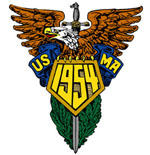 The '54 Crest
The '54 Crest
 General MacArthur stated it would take
General MacArthur stated it would take "at least 10 years" to return Army Football to Respectability
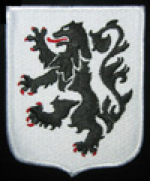 28th Infantry Regiment Black Lion Award is intended to go to the person on his team "who best exemplifies the character of Don Holleder: leadership, courage, devotion to duty, self-sacrifice, and - above all -
28th Infantry Regiment Black Lion Award is intended to go to the person on his team "who best exemplifies the character of Don Holleder: leadership, courage, devotion to duty, self-sacrifice, and - above all - an unselfish concern for the team ahead of himself."
 General George Patton
General George Patton "The Army moves as a team, eats as a team, and fights as a team."
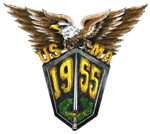 The '55 Crest
The '55 Crest
 They played perhaps Army's Greatest Game. They played perhaps Army's Greatest Game.They were the Team that Gave The Most
 Don Hollender Remember - The Soldiers you will lead Always Come First
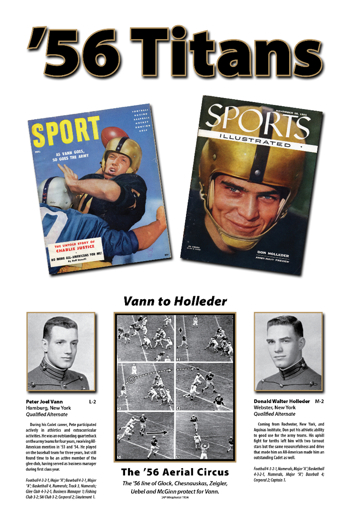 Vann and Holleder Vann and Holleder
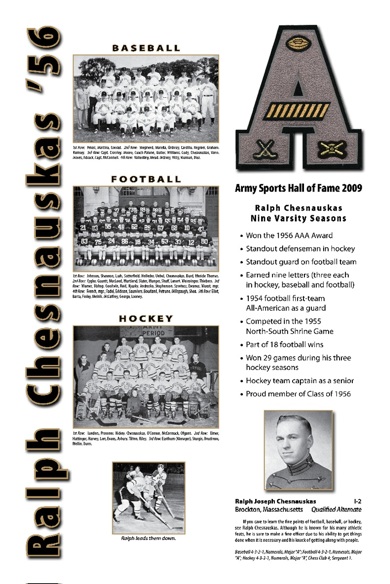 9 Army A's 9 Army A's
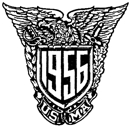 The '56 Crest
The '56 Crest
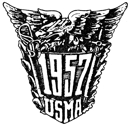 The '57 Crest
The '57 Crest
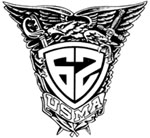 Can Do
Can Do
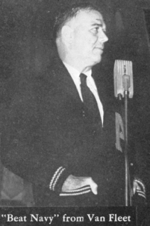 Gen Van Fleet addressing the Corps prior to the Navy Game
Gen Van Fleet addressing the Corps prior to the Navy Game
 Constructed under supervision of Jay Gould "54 and the Ord Dept from a German Rocket Gun captured at Kasserine Pass. First used in the Duke Game.
Constructed under supervision of Jay Gould "54 and the Ord Dept from a German Rocket Gun captured at Kasserine Pass. First used in the Duke Game.
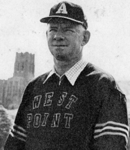 COL "Red" Reeder granted the Cheerleaders Corps Squad status to obtain financial support for their spirit-inducing initiatives.
COL "Red" Reeder granted the Cheerleaders Corps Squad status to obtain financial support for their spirit-inducing initiatives.
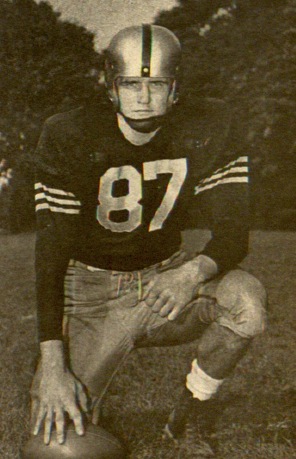 Bob Mischak - - It should be pointed out that Bob was an All American selection, but is not recognized by the Academy as such because of the organization which selected him. Bob Mischak - - It should be pointed out that Bob was an All American selection, but is not recognized by the Academy as such because of the organization which selected him.
 Ubel scores 3 Times against Navy - Vann's facking results in Peter getting tackled - #10 on the ground behind Ubel
Ubel scores 3 Times against Navy - Vann's facking results in Peter getting tackled - #10 on the ground behind Ubel
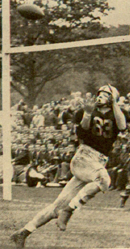 Vann to Sisson
Vann to Sisson
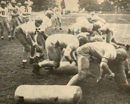 Army's B Squad
Army's B Squad
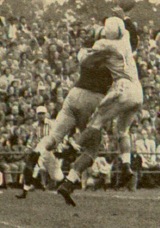 Vann to Mischak. Vann to Mischak.
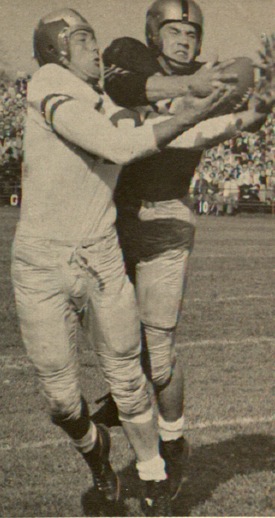 Uebel Intercepts Uebel Intercepts
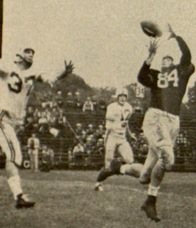 Cody to Don Holleder Cody to Don Holleder
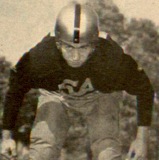 Lasley Lasley
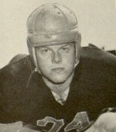 Frank Hicks Frank Hicks
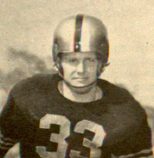 Burd Burd
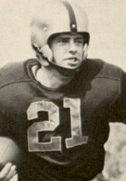 Bill Purdue Bill Purdue
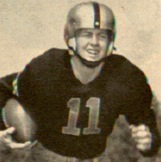 Cody Cody
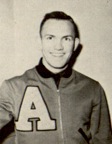 Meador Mgr Meador Mgr
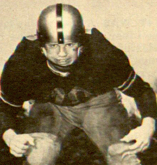 Ron Melnick Ron Melnick
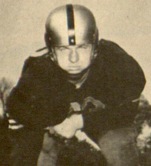 Ralph Chesnauskas Ralph Chesnauskas
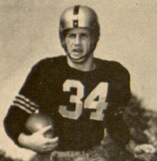 Pat Uebel Pat Uebel
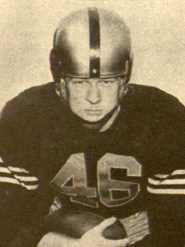 Tommy Bell Tommy Bell
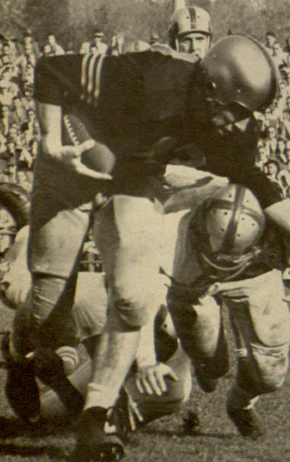 Sisson headed for another score Sisson headed for another score
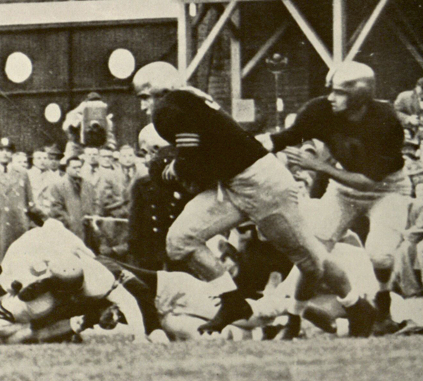 Peter Vann stuffs the ball in Jerry's gut Peter Vann stuffs the ball in Jerry's gut
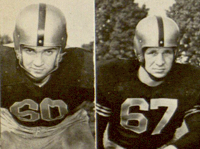 Leroy Lunn & Jerry Lodge Leroy Lunn & Jerry Lodge
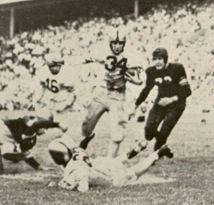 Uebel after taking the handoff from Hagan
Uebel after taking the handoff from Hagan
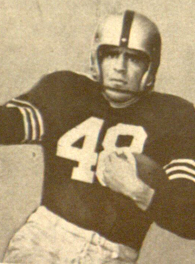 Attaya - Army's Fullback
Attaya - Army's Fullback
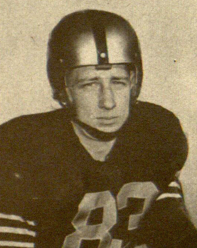 Sisson - one of 3 Great Ends
Sisson - one of 3 Great Ends
 Bob Mischak Bob Mischak
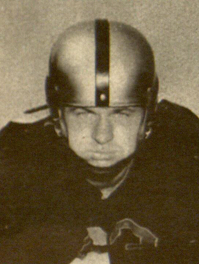 Ralph Chesnauskas Ralph Chesnauskas
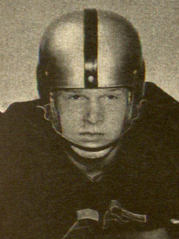 Bob Farris Bob Farris
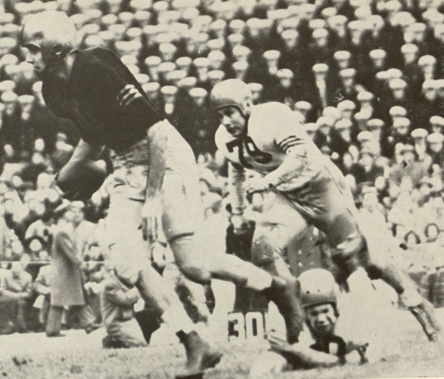 Vann moving out of the pocket
Vann moving out of the pocket
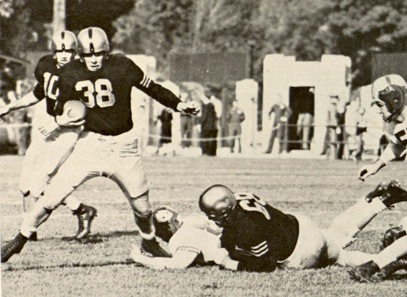 Peter Vann 10, Billy Chance 38, Herdman 68
Peter Vann 10, Billy Chance 38, Herdman 68
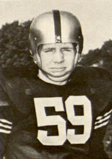 Ken Kramer Ken Kramer
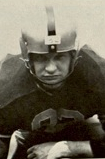 Joe Lapchick Joe Lapchick
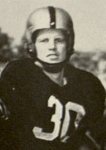 Kirk Cockrell Kirk Cockrell
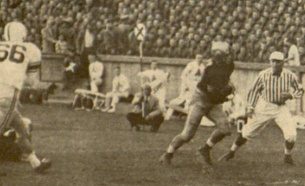 Lodge going down tosses to Paul Schweikert for score. Lodge going down tosses to Paul Schweikert for score.
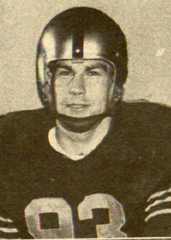 Dick Zeigler Dick Zeigler
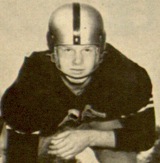 Bob FarrisPlayed the 2d half of the Navy Game blind in one eye. Bob FarrisPlayed the 2d half of the Navy Game blind in one eye.
 Pat Uebel Pat Uebel
 Tommy Bell Tommy Bell
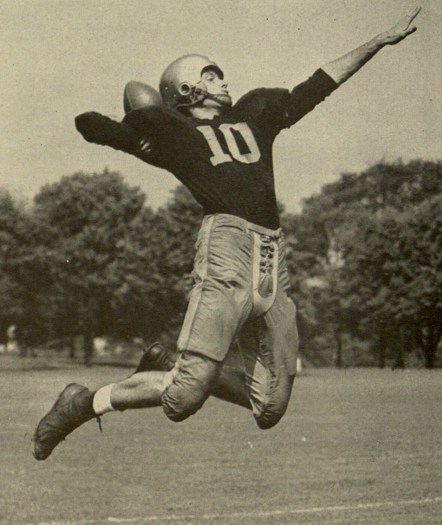 Peter Vann Peter Vann
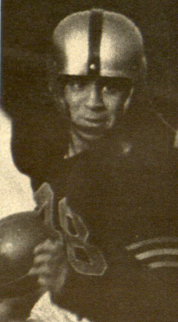 Freddie Attaya Freddie Attaya
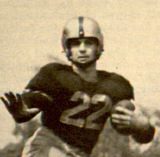 Mike Zeigler Mike Zeigler
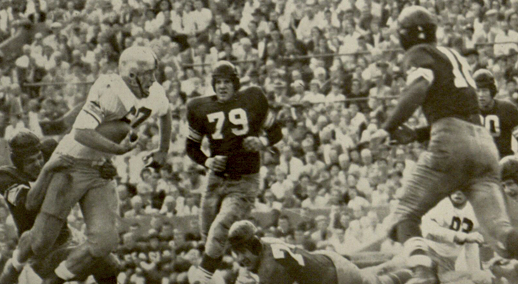 Jerry Lodge wearing #67, playing fullback. Jerry Lodge wearing #67, playing fullback.
 Johnny Wing Johnny Wing
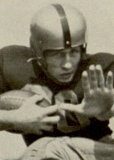 Lowell Sisson Lowell Sisson
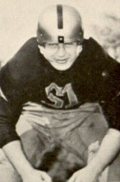 Norm Stephen Norm Stephen
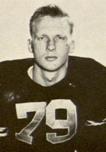 Jack Krause Jack Krause
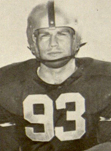 Dick Ziegler Dick Ziegler
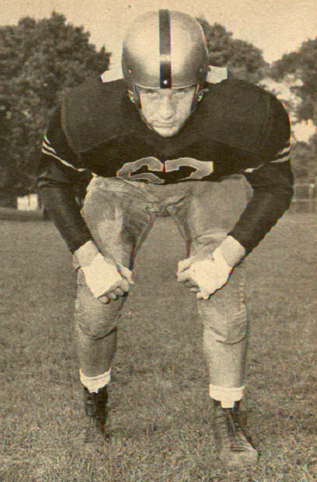 Jerry Lodge Jerry Lodge
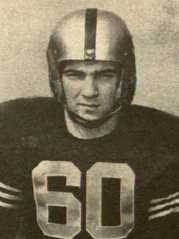 Leroy Lunn Leroy Lunn
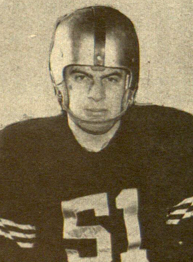 Norm Stephen Norm Stephen
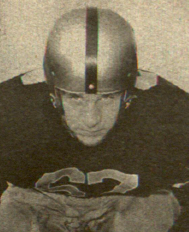 Jerry Lodge Jerry Lodge
 Corps of Cadets for Navy Game Corps of Cadets for Navy Game
 Can Do
Can Do
 General MacArthur stated it would take
General MacArthur stated it would take "at least 10 years" to return Army Football to Respectability
 General George Patton
General George Patton "The Army moves as a team, eats as a team, and fights as a team."
 Don Hollender Remember - The Soldiers you will lead Always Come First
 The '54 Crest
The '54 Crest
 The '55 Crest
The '55 Crest
 28th Infantry Regiment Black Lion Award is intended to go to the person on his team "who best exemplifies the character of Don Holleder: leadership, courage, devotion to duty, self-sacrifice, and - above all -
28th Infantry Regiment Black Lion Award is intended to go to the person on his team "who best exemplifies the character of Don Holleder: leadership, courage, devotion to duty, self-sacrifice, and - above all - an unselfish concern for the team ahead of himself."
 They played perhaps Army's Greatest Game. They played perhaps Army's Greatest Game.They were the Team that Gave The Most
 The '56 Crest
The '56 Crest
 The '57 Crest
The '57 Crest
|
Herman J. Koehler
Master of the Sword
THE RETIREMENT OF COLONEL KOEHLER
From the 1924 Pointer
United States Corps of Cadets
From 1924 Pointer
It was on February 1, 1885, that Herman J. Koehler reported to Colonel Wesley Merritt, then superintendent, as Master of the Sword of the United States Military Academy. And on that day it may justifiably be stated that modern Army Physical Training began. The gymnasium, which measured 13x25x60 feet, boasted of equipment consisting of one horizontal bar, two wooden horses, one life size and one colt size, a swing, parallel bars, four feet high and twenty feet long, nailed to the floor, and some clubs and dumbbells of antiquated size and weight.
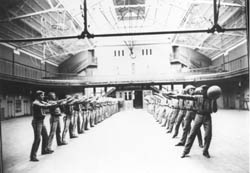
However, the beneficial effects of the system of instruction introduced by Colonel Koehler were so readily apparent that in 1892 a new gymnasium was completed and instruction expanded to include fencing, swimming, and gymnastics. In 1905 another advance was accomplished when boxing and wrestling were added to the Academy's physical curriculum, instruction being extended at the same time to include the entire Corps. Five years later witnessed further recognition of the Koehler system of physical education when the present modern gymnasium was constructed. In 1920, the present course of physical and intramural athletic training was inaugurated, thereby establishing the Military Academy without a peer the world over.
In addition to his success at West Point, Colonel Koehler had distinguished himself prior to his service in the Army. Beginning physical training at the age of eight, he won the national championship in all around gymnasium and athletics at the age of nineteen. In 1880 he emerged with second rank in an international competition held at Frankfort-on-the-Main, the competitors numbered over five hundred. The following year Colonel Koehler attended as an on-looker a national competition staged in the same city. Upon discovery of the fact that the man who won first place the preceding year was competing, he entered the lists despite the fact that he had not trained for the event. The results placed Colonel Koehler first against a field of three hundred.
The recent World War supplied him with another opportunity for distinguished service to his country. Placed in charge of the disciplinary physical training in the Officers and Divisional Training Camps of the National Army, he personally instructed over 200,000 men, of whom 35,000 were aspirants for commissions. It was not infrequent for him to lead an entire brigade of 6,000 men in calisthenics. The Distinguished Service Medal was awarded Colonel Koehler in 1919 in recognition of these achievements.
Previous to the war he had assisted in the physical instruction of the New York and Massachusetts National Guard regiments in 1911, 1912, and 1913; had aided the establishment of the recruit school of the New York Police Department in 1913; had sole charge of drill and physical instruction of the New York quota during the Mexican border trouble in 1916; and was in command of the disciplinary training at Plattsburg in 1915 and 1916, serving under General Underwood. In 1921 and 1922 he assisted with the C.M.T.C. camps. It is estimated that he has during his career instructed upward of 400,000 persons, a distinction, which certainly has never been equaled.
Since the time of Colonel Thayer no officer has left the imprint of his personality and character so firmly imbedded in the atmosphere and spirit of West Point.
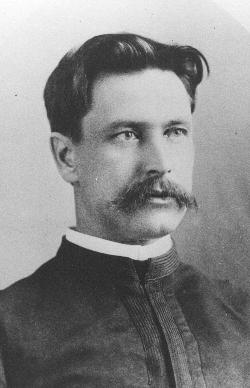
On December 14th, Lieutenant Colonel Koehler was retired.
The Corps extends to Colonel Koehler thanks for all that he has done for West Point, and for all that he has accomplished, by precept and practice, for generation after generation of cadets. Its good wishes are with him for many more years of activity among them. The Army Athletic Association has obtained the services of Colonel Koehler as Executive Manager of Athletics, thus assuring his continued co-operation in the further development of the athletic system he has developed.
A conversation with LTC Herman J. Koehler and his friends
Heaven's Gym #1 is located just inside the Pearly Gates, in the Old Section. Most new arrivals to the afterlife train further out in gyms that look much like ours here on earth. Old-timers like LTC Herman J. Koehler and his friends train at HG #1. It has many rooms. Ladders, ropes, traveling rings, trapezes, and other amazing devices hang from the walls and ceilings. Wrestlers, boxers and gymnasts fill the main floor. Above the door at the main entrance there is a quote by Rudyard Kipling:
"Nations have passed away and left no trace,
and history gives the naked cause of it--
one single, simple reason in all cases;
they fell because their people were not fit."
Koehler is still in great shape as he prepares to celebrate his 140th birthday this year on December 14. Folks in Heaven are generally uninterested in our terrestrial adventures, but civility is still the standard there. If we listen carefully, they will speak.
KOEHLER: I understand that you are with the U.S. Army Physical Fitness School. Do you know who I am?
THOMAS: You were Master of the Sword at the United States Military Academy from 1885 until 1923, and you are certainly the "Father of Modern Army Physical Readiness Training."
KOEHLER: I died in 1927, but my system was losing ground when I retired in 1923. How do you still know of me?
THOMAS: Fragments of your work can still be found in archives at West Point, and you were the driving force behind the Army's first physical training manuals. Captain Robert Degan wrote about you in his Master of Science thesis in physical education at the University of Wisconsin in 1966. He was killed in Viet Nam a few years later.
KOEHLER: I know. He is here with us now.
THOMAS: What was the source of your unparalleled genius for Army physical training.
KOEHLER: I was born in Milwaukee, Wisconsin in 1859. My parents were German and deeply involved in the Turnvereine, and I began training when I was a child.
THOMAS: What is the Turnvereine where did it come from?
KOEHLER: During the early 19th Century, Germany was weak and divided into hundreds of independent sovereignties that were no match for Napoleon's mighty army. Friedrich Ludwig Jahn, the Father of German Gymnastics, was not yet 30 years of age when he rushed to help defend Prussia at the Battle of Jena in 1806. He arrived to witness overwhelming defeat, the loss of almost half of his beloved homeland, and its eventual occupation by 150,000 French. Jahn eventually inspired a system of physical training that transformed the nation. Here he comes now. Turnvater Jahn, this rookie wants to know about the Turner system of gymnastics.
JAHN: I was born in Prussia on August 11, 1778 and grew up longing for a good education. Unfortunately, the schools were decadent. I spent my youth as an outsider to the inertia, drinking, and fighting that dominated much of the academic environment. I spoke out against the decay and was dismissed from numerous universities. My real education came from wandering throughout the countryside and coming to love my troubled nation with a fervor that aroused all I met along the way. Between my retreat from Jena and the War of Liberation, which eventually led to the defeat of Napoleon at Waterloo, I began teaching at Graue Kloster, a boys' school in Berlin. There I planted the seeds for a system of gymnastics that transformed German physical culture.
Gymnastics is not merely the means of augmenting physical powers, but a tool for achieving political goals as well. German freedom and strength revolved upon the youth of the state and, therefore, the supreme aim of physical education was to develop sturdy citizens possessing a love of their homeland and the aggregate strength to throw off the rule of the oppressor from either outside or inside the nation.
A wave of patriotism followed the defeat at Jena, and my call for action made me a national hero. By 1814, I was even receiving a government salary, and the Turnvereine Gymnastic Societies grew rapidly. I had inspired a nation of citizen-soldiers. After Germany was liberated, the Turners joined the call for more personal and political freedom. The government reacted. Many Germans had hoped that Napoleon's defeat would be followed by national unity under constitutional rule. Instead, the monarchs banned the Turnvereine.
I was eventually arrested and jailed. It took around five years for me to be free of charges. It all eventually led to a failed and bloody revolution in1848. Thousands of Germany's best and brightest fled their homeland, and many chose America. I stayed behind in Germany and died a few years later in 1852.
KOEHLER: The first American Turnvereine opened in Cincinnati. Twenty-two Turner Societies were operating in the United States by 1851. Ten years later, the Turners, vehemently opposed to slavery, were among the first to volunteer as units in the Northern Army. Of an estimated 10,000 active Turners, approximately 6,000 enlisted. Many of them were lost in battle.
THOMAS: I have read that the Turners fought valiantly during the Civil War, and afterwards, many school districts eventually began to adopt the Turner physical education system. What role did you play?
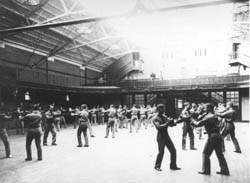
KOEHLER: I studied in the Turnvereine throughout my youth and graduated in 1882 from the Milwaukee Normal School of Physical Training, a Turner school. My uncle, George Brosius, directed it. He fought bravely in the Civil War and later served as superintendent of Physical Training in the public schools of Milwaukee from 1875 to 1883. After graduating, I worked for a while teaching and building physical education programs in Wisconsin schools. In 1885, I was appointed Master of the Sword at West Point Military Academy.
THOMAS: An 1889 report to the Board of Visitors at the Military Academy in 1889 stated:
"We confess that it was exceedingly difficult to believe that the gymnastic exercise performed by the fourth class could be the result of only one year of practice under the instruction by Professor Koehler. The feats of agility were simply wonderful; they are valuable chiefly as evidence of sound, muscular, trained bodies. Professor Koehler is an accomplished teacher."
How did you do that?
KOEHLER: My system had four main functions: To build the men up physically, to wake them up mentally, to fill them with enthusiasm, and to discipline them." I believe that mechanical proficiency through physical training is essential for self-reliance, courage, and personal discipline. I further argued that the discipline of the individual determines the discipline of the mass.

THOMAS: What is discipline?
KOEHLER: It is the voluntary, intelligent, coordinated and cheerful subordination of every individual in an equal degree with every other individual of the mass to which he belongs, and of which he is an interdependent and not an independent unit, through which the object of the mass can be attained. Discipline is behavior that punishment unnecessary. In order to be disciplined, a soldier must be committed to ideals larger than himself. The disciplinary value of military physical training should equal, if not surpass its purely physiological value.
THOMAS: Did the Army ever fully embrace your ideas?
KOEHLER: No. In the early 1900s, sports and games gradually began to replace rational physical training. What is Army PRT like these days?
THOMAS: We could use a few guys like you.
KOEHLER: Stop by again sometime.
THOMAS: Thanks. I will.
Quelle/Source:
Dr. Thomas (USA), UNITED STATES ARMY PHYSICAL FITNESS SCHOOL
|
|


 General MacArthur stated it would take
General MacArthur stated it would take  28th Infantry Regiment
28th Infantry Regiment 
 They played perhaps Army's Greatest Game.
They played perhaps Army's Greatest Game.


























































 General MacArthur stated it would take
General MacArthur stated it would take 


 28th Infantry Regiment
28th Infantry Regiment  They played perhaps Army's Greatest Game.
They played perhaps Army's Greatest Game.



































 Cadet Barracks
Cadet Barracks























